In a first-of-its-kind initiative, the Meghalaya Cancer Conclave 2024 witnessed the coming together of oncologists, researchers, scholars, NGOs, industry leaders, government officials, and media representatives organized by the Meghalaya Government in partnership with the Apollo Telemedicine Networking Foundation (ATNF), facilitated by the Meghalaya State Cancer Society. The two day conclave was held in Shillong on 12th February 2024, under the theme “Closing the Care Gap.” The conclave will conclude on 13 February.
Amidst a pressing need for action, the spotlight falls on the cancer scenario in Meghalaya, by recent statistics. According to the Indian Council of Medical Research – National Centre for Disease Informatics and Research (ICMR-NCDIR), the profile of cancer and related health indicators in the North-East Region – 2021 reveals concerning figures. East Khasi Hills District of Meghalaya records the highest rate of Tobacco Related Cancer Reported in India, with 70.4% in males and 46.5% in females.
It was also learnt that in Meghalaya, leading anatomical sites of cancer show significant correlations with tobacco use. Oesophagus ranks highest, representing 66.9% of male cases and 43.1% of female cases. Following closely are hypopharynx and stomach in males, while cervix-uteri and mouth are prominent in females. Nearly two-thirds of male cancers and over 40% of female cancers are attributed to tobacco use, with oesophageal cancer being the most prevalent. These statistics underscore the urgent need for targeted interventions to reduce tobacco consumption and improve cancer prevention efforts, particularly in high-risk populations.
Chaired by Dr. Mazel Ampareen Lyngdoh, Meghalaya’s Minister in charge of Health and Family Welfare, the two-day conclave took place at Courtyard Marriott Shillong. She emphasized the significance of the program, setting the tone for all attendees, including cancer survivors. She highlighted several key points, expressing her perspective upon assuming her role in the department of Health and Family Welfare.
Dr. Lyngdoh said, “Cancer remains a taboo and a feared illness. We must collectively act and move beyond mere discussion to tangible steps. Governmental involvement in cancer patient care is crucial, and it is crucial to emphasize on the importance of prevention.” Additionally, she raised concerns about the mental health impact of the disease on patients and their families, urging for a focus on closing the care gap and ensuring steps aimed at making the patients and their families feel secure. Dr. Lyngdoh also addressed the need for lifestyle improvements and called upon all stakeholders, including the media, to collaborate on determining actionable steps forward.
The Principal Secretary and Chairman of the State Cancer Society of Meghalaya provided a brief review, highlighting significant efforts made in cancer care. He mentioned the initiation of universal screening, particularly in East Khasi Hills, which is now being extended statewide. He also advocated for the involvement of traditional as well as faith based institutions and healthcare providers in this journey.
Kumar stated, “The implementation of Universal Health Coverage (UHC) in the form of Meghalaya Health Insurance Scheme (MHIS) marks a significant achievement, with a notable increase in people accessing insurance programs. Additionally, we’ve seen a remarkable 50% reduction in maternal deaths over the past three years. When it comes to cancer, early detection and awareness are crucial.’’ He also added, ‘’We have plans to conduct cancer screening endoscopies in every district. It’s imperative for local leadership to step up, and we must ensure that traditional doctors and staff receive adequate training to effectively address cancer.”
Recognizing cancer as a significant issue in Meghalaya, Ram Kumar S, IAS, Secretary Health & Family Welfare, mentioned the launch of various pilot projects across different platforms. He added that the state acknowledges cancer as a major threat to families’ livelihoods, among other aspects and in line with this, assumed the significance of the Meghalaya Cancer Conclave.
He said, “I want to emphasize Meghalaya’s enhanced treatment capabilities, as we progress towards a curative stage. In these two days of the conclave, our agenda will focus on community aspects, prioritize media engagement for awareness, and address misconceptions, with the goal of achieving a 50% increase in cancer awareness,’’ he stated.
The next segment touched hearts deeply with a special song performed by the Oncology Department of Civil Hospital Shillong, dedicated to all cancer survivors. The song carried a poignant message of resilience, urging survivors to press on with positivity and to never lose hope, even in the face of life’s toughest challenges. It served as a tender reminder that cancer patients are not alone in their battle against the disease, offering a comforting embrace of support and solidarity.
During the address on the journey of Meghalaya Against Cancer, Dr Anisha Mawlong, HOD, Radiation Oncology Civil Hospital Shillong, provided insights into the journey thus far and the path ahead. She emphasized that the Meghalaya Cancer Conclave marked a pioneering initiative, offering a retrospective look at what has been achieved, what currently exists, and what lies ahead. Highlighting esophageal cancer and the prevalence of tobacco-related cancers in East Khasi Hills, she showcased the evolution of cancer care, starting with just 15 beds in the OPD. However, governmental initiatives led to the establishment of the Cancer Wing in Shillong, now equipped with new OPD services.
Dr. Mawlong said, “Our focus now turns to the Meghalaya Mission Cancer, with centers set up at Civil Hospital and Northeastern Indira Gandhi Regional Institute of Health & Medical Sciences (NEIGRIHMS). I want to emphasize the criticality of awareness, screening, and early detection, as we ensure the mission’s integration across all sectors. In collaboration with the Apollo network, we’ve launched a separate project, mobilizing teams for active screenings in the field.”
Sharing data, she revealed that out of 1093 patients screened, 15 were confirmed cases, with 71 suspected cases. Encouragingly, last April saw 153 males and 146 females screened, with 74 confirmed cancer cases. Additionally, she announced plans for a Cancer Wing at Tura Hospital in Garo Hills, extending care to the population in that region.
The Commissioner & Secretary of the Department of Health & Family Welfare emphasized the importance of tumor classification during his address. He highlighted various issues related to cancer treatment and introduced a significant advancement in the field – TCell treatment, which is both novel and costly but now available in India. He acknowledged that there is still a long journey ahead in terms of treatment.
Meanwhile, as part of the Meghalaya Mission Cancer Prevention & Early Detection initiative, Mobile endoscopy units were distributed through Certificates presented to the following hospitals: Civil Hospital Shillong, Civil Hospital Nongstoin, Jowai West Jaintia Hills, Mawkyrwat South West Khasi Hills, Tirot Singh Memorial, Civil Hospital Baghmara, a civil representative from Williamnagar, Hospital Ampati, Tura, Khelriat, Ri Bhoi Nongpoh, and Resubelpara.
Following this, promotional videos for the first cancer care project were also launched, along with the unveiling of oncology data management.
The heartfelt testimonials from cancer survivors painted a vivid picture of their emotional journeys. Master Tyngshain Kharkrang ,8yrs old, bravely recounted his battle with medulloblastoma in 2021. Mrs. Jeena Mary Nongbet’s story of being declared cancer-free since 2020 stirred emotions as she expressed profound gratitude to the tireless caregivers who stood by her side. Miss Yasmine Lyngdoh’s journey from childhood cancer survivor to facing multiple diagnoses in 2022 tugged at the heartstrings, underscoring the vital importance of early detection and the enduring strength and Warilin Lyngwa’s triumphant battle against cancer after a grueling two-year fight evoked tears of both sorrow and joy.
After the heartfelt testimonials, Prem Anand, Chief Business Officer of Apollo Telemedicine Networking Foundation, expressed pride in supporting the initiative. He emphasised the importance of collaboration in driving positive outcomes in cancer care.
Continuing the discourse, Dr. W.B Langstieh, Principal Investigator of the Population-Based Cancer Registry, delved into the topic of Population-Based Cancer Registry in Meghalaya. Through data presentation and the illustration of objectives via a comprehensive flowchart depicting morbidity data processing, Dr. Langstieh shed light on the registry’s crucial role in understanding and addressing cancer trends within the region.
Another pertinent topic addressed was the National Tobacco Control Programme (NTCP), shown by Dr. L.E Lyngdoh Nongbri, State Nodal Officer of NTCP. Dr. Nongbri brought to attention alarming statistics regarding tobacco usage: a staggering 47% of adults aged 15 and above are tobacco consumers, along with 34% of children aged 13-15 in Meghalaya. The devastating toll of 8,000 deaths annually underscores the urgent need for intervention.
A panel of experts provided comprehensive insights on various aspects of cancer care and prevention. Mr. Prem Anand from Apollo highlighted the expansive scope of the first cancer care project. Dr. (Mrs.) C. Langrai discussed data integration strategies in the National Programme for Prevention & Control of Non-communicable Diseases (NP-NCD). Mr. Tennychell Khongrangjem emphasized the importance of the National Programme for Palliative Care (NPPC). Dr. K. Ganapathy delved into technology-enabled public health screening of cancer. Dr. Anisha Mawlong shared insights on early cancer detection in Meghalaya. Dr. S.G Ramanan advocated for a multidisciplinary approach to improving cancer care, while Dr. Priyanka Dev underscored the team-based approach in palliative care. Lastly, Dr. B.B. Borthakur addressed challenges in cancer awareness and health-seeking behavior.
At the culmination of the first day, a discussion on “Cancer Care at Peripheral Centers: Expectations vs. Reality” was led by Ram Kumar S, IAS, Secretary Health & Family Welfare, Government of Meghalaya, with Dr. Anisha Mawlong, HOD of Radiation Oncology at Civil Hospital Shillong, serving as the moderator and member secretary of the State Cancer Society of Meghalaya.


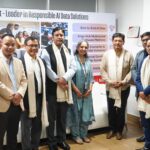
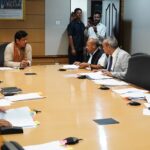
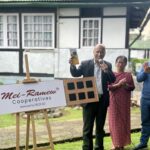




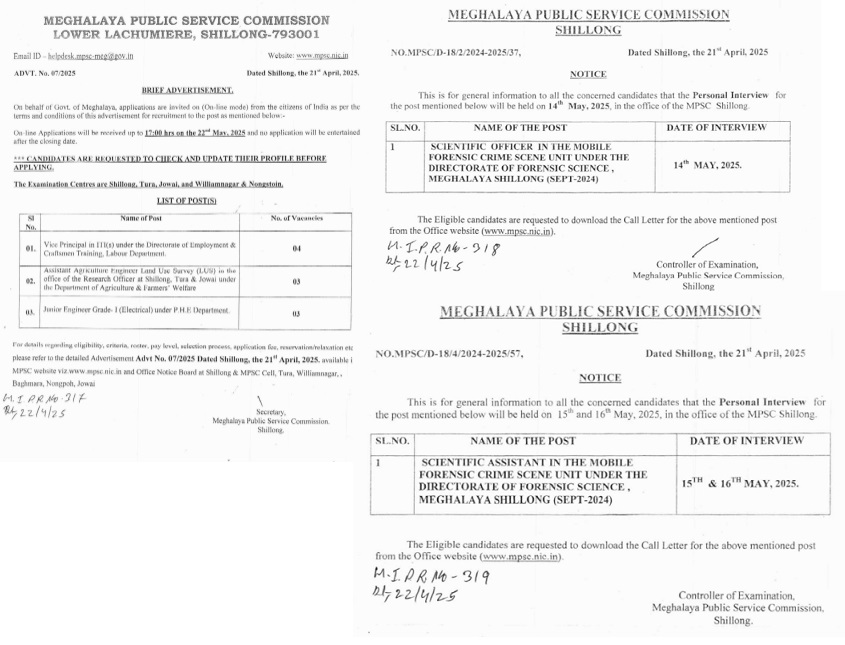

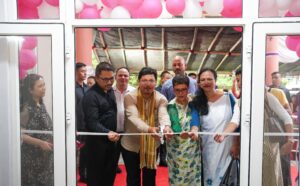
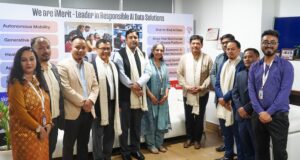
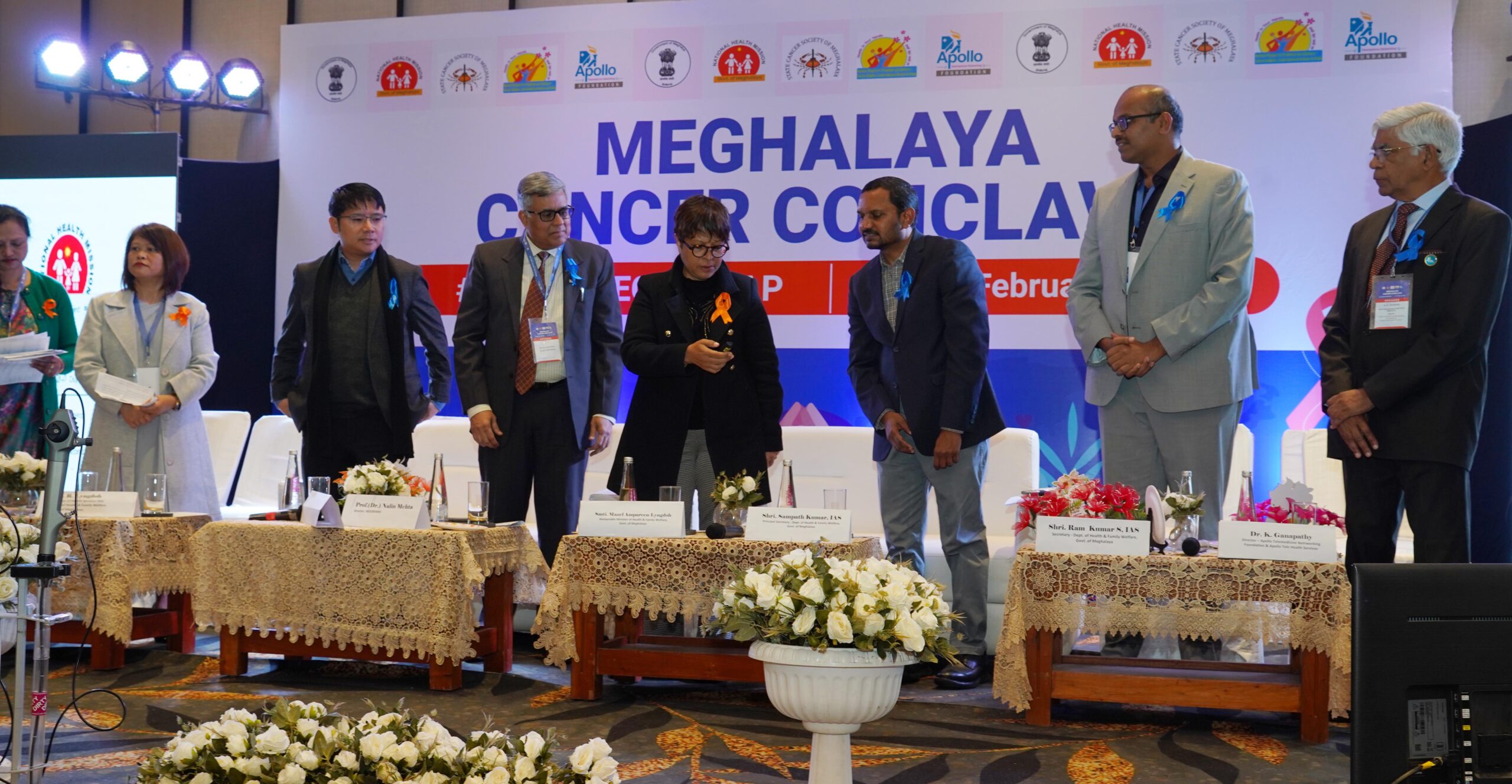
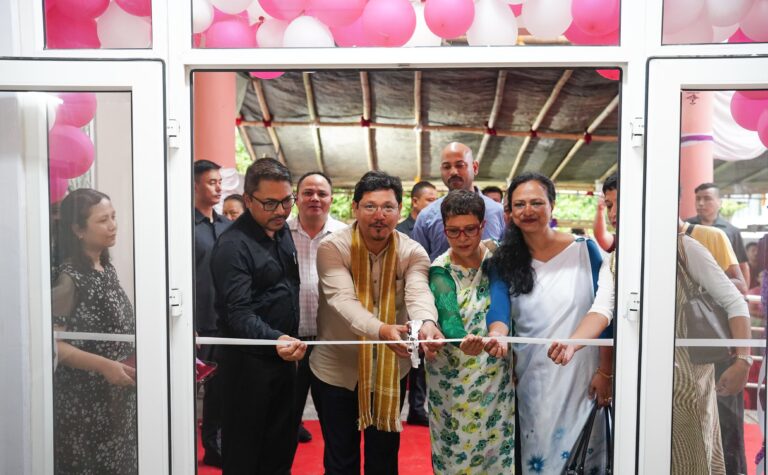
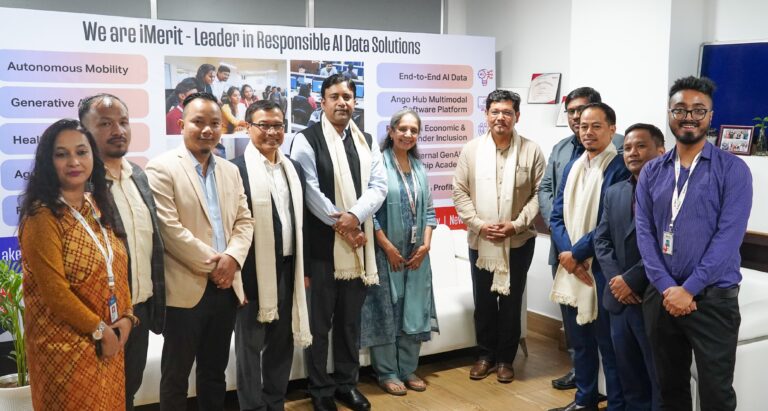
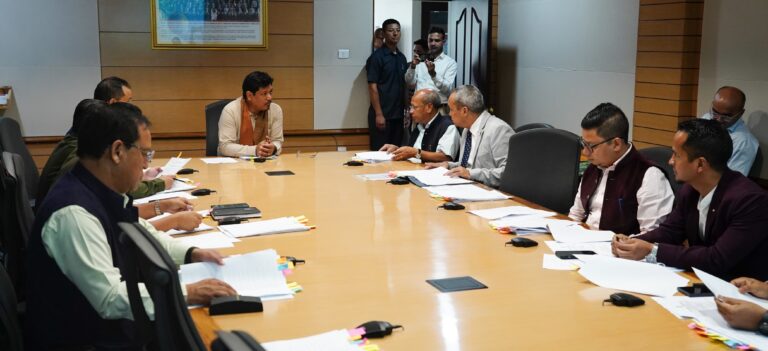

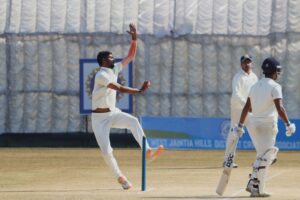
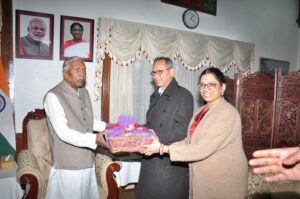
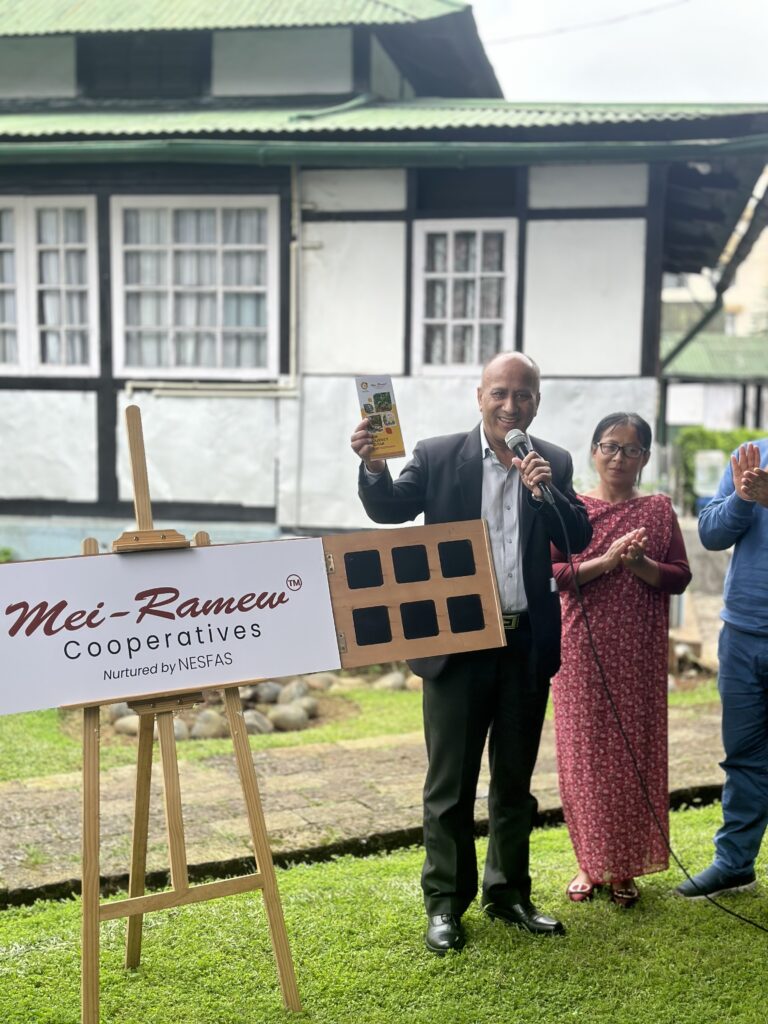
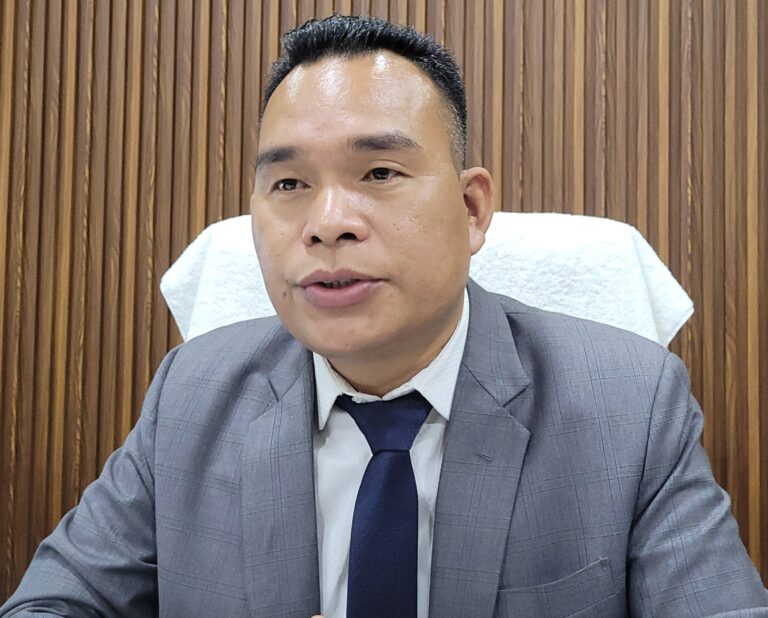
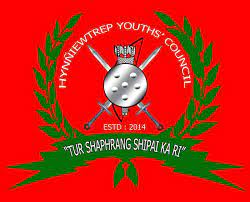

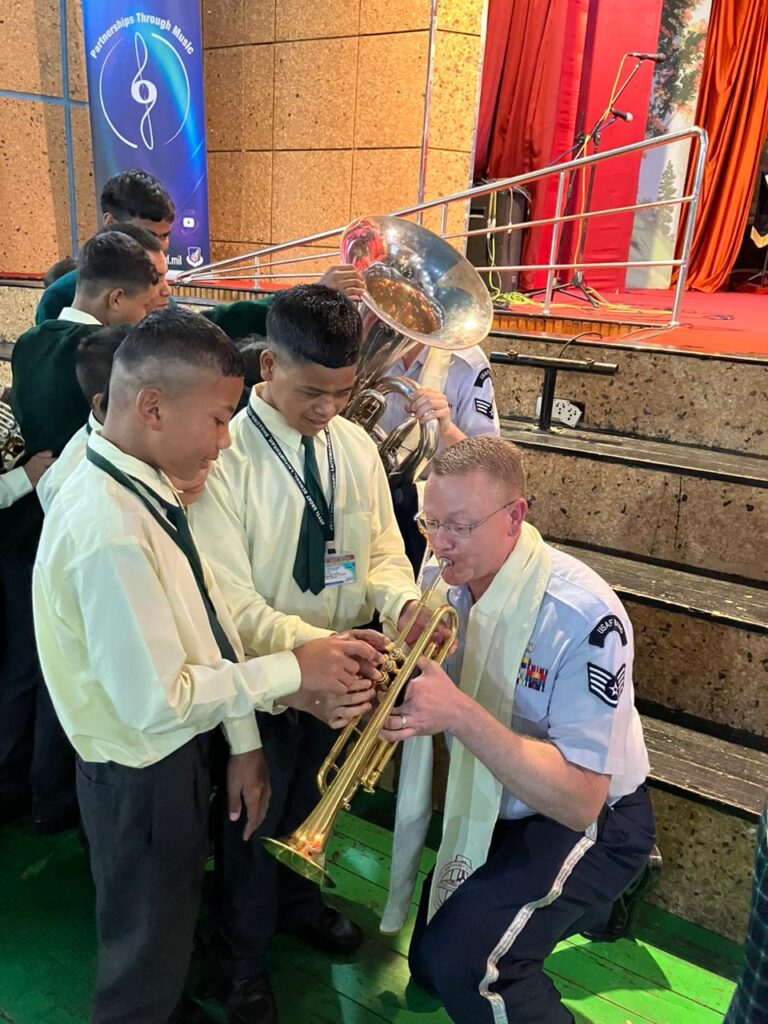
+ There are no comments
Add yours